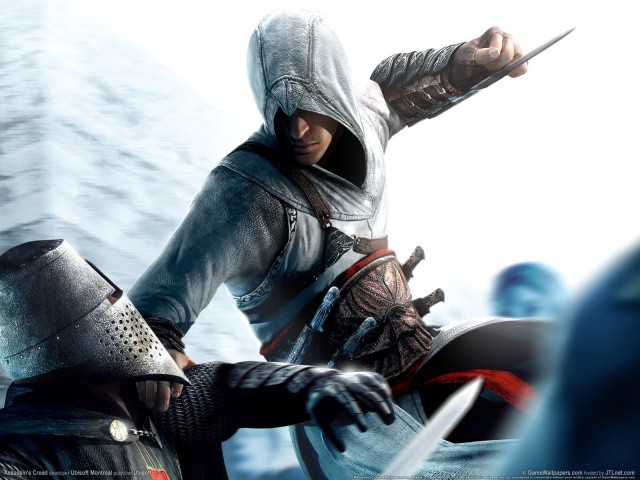A number of recent opinion posts have suggested that Apple has a real shot at the gaming market.
Part of this flurry of commentary stemmed from a rumor, which turned out to be false, that Apple CEO Tim Cook met with executives at game publisher Valve.
“Apple is Set to Change Gaming,” said one headline. The deck went on: “It’s just a matter of time before Apple storms into the console business.”
“How Apple Can Conquer the Gaming Industry Without Firing a Shot,” said another headline.
I’m sorry, but this conquering of the gaming market has already happened.
Here’s why.
Apple is the Starbucks of Gaming
One way to understand Apple’s participation in the gaming market is to compare it with Starbucks’ in the coffee market.
Before Starbucks, a tiny minority of coffee drinkers in the United States sought out specialty shops that sold premium whole beans and ground their own at home, brewing it with some exotic, imported European coffee contraption. High-quality coffee houses that used premium beans and high-end equipment existed, but they were rare, and exclusively urban.
The vast majority of Americans bought pre-ground commodity coffee in a can and made it using a plastic drip system with a paper filter, or something similar. Or people drank instant coffee. In diners and restaurants, people drank the same kind of lousy, canned coffee made with low-quality brewing equipment.
The serious enthusiasts who sought out premium whole beans, bought grinders and went to coffee houses are akin to the serious console gaming market today.
These gamers are so serious about gaming that they seek out special equipment (Xbox and Playstation consoles, Kinect hardware, game controllers, headsets and so on).
What Starbucks did was not take over the existing “gourmet coffee” market, although that’s probably what they initially set out to do. What they did was bring “gourmet coffee” to non-enthusiasts. They got every day people to drive out of their way, wait in line and pay $4 for premium coffee.
Of course, the hard-core coffee snobs think Starbucks is crap. But nobody can argue with the fact that Starbucks rules the retail coffee market.
That’s what Apple does with gaming. They’re not going after the console gamer. Just as Starbucks got non-gourmet coffee drinkers to drink gourmet coffee, Apple is getting non gamers to play games.
This point was driven home recently while I was listening to one of my favorite podcasts, called the Slate Culture Gabfest. The hosts of the show are poetry-reading, granola-baking, lecture-attending East Coast intellectuals. They’re not the kind of people who would ever play Call of Duty on Xbox. They feel alienated from the entire gaming world, and didn’t grow up playing console games as kids.
Yet they all admitted in a recent show that they’ve started playing casual games on their iPhones. Apple and the iPhone has turned them into gamers, and turned them into customers of game developers.
This scenario has played out millions of times for millions of people. Apple turns non-gamers into gamers. They’ve expanded the gaming market in every direction, expanding the age, income and gender barriers that used to exist.
Apple is even being sued by parents because they say Apple makes it too easy for their young children to buy, download and use games from the App Store.
Apple Will Replace, Not Conquer, Console Gaming
As I’ve predicted many times before, Apple’s surefire plan is to start small and grow big, as we evolve into the post-PC era.
iOS games, which of course currently dominate the mobile gaming space, are moving on up like the Jeffersons. iPads will grow more powerful and eventually have larger screens. Future Apple desktops will run a powerful version of iOS, which will really be a hybrid iOS, OS X system capable of powering serious hardware and giant screens, but functioning like an iPad.
The iOS gaming industry will continue to innovate with touch games, and will also take advantage of future Siri voice command and future gesture interfaces that Apple will inevitably support with iOS. Third party companies can go ahead and build game controllers, as they already do for iPhones and iPads. Apple’s long-rumored TV set will be optimized for big-screen gaming as well.
In the end, the whole “console” concept will be infinitesimally small, a relic of the bygone PC era, compared with the mainstream gaming market on iOS.
While big-screen iOS devices are still in the future, the “conquering” of that future is already total and complete. Now all they have to do is keep expanding it.
Apple’s relationship to the gaming market in 2012 is comparable to Starbucks’ relationship to the coffee market in 1992. The format and basic idea is already in place. Now all they have to do is grow.
(Image courtesy of Ubisoft)


